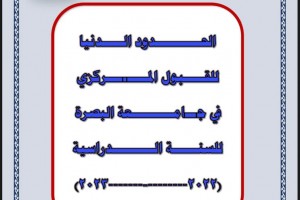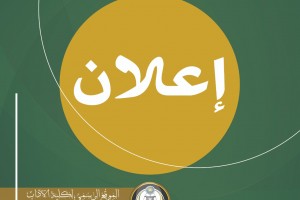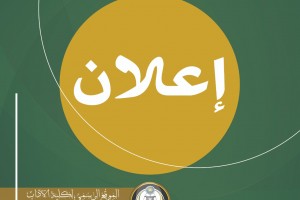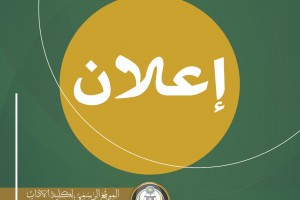
On Thursday morning 11/17/2022, a PhD thesis entitled “transformation of meaning in grammatical chapters” was discussed in the Department of Arabic Language at the College of Arts at the University of Basrah.
The thesis presented by the student, Awatif Ahmed Rasan, included three chapters. The first chapter discussed the nature of the grammatical meaning and its transformations, the second chapter discussed the transformation of the singular grammatical meaning, and the third chapter dealt with the transformation of the compound grammatical meaning.
The thesis aims to study the phenomenon of meaning transformation in Arabic grammar between chapters and to define the concept of conversion, its divisions, mechanisms and methods.
The thesis concluded that transformation was not absent from the first grammatical mentality, as the ancient grammarians expressed the concept of conversion in their grammatical works through its meanings such as "transfer, demise, and change" and referred to conversion explicitly in the context of their talk about the transformed distinction.
This transformation is represented in the linguistic use, not in the mind of the speaker. This view invalidates the existence of transformed structures within the mind because there are no complete sentences and structures in it as the transformed structure is generated from the linguistic use of sentences and structures, and this proves that its origin is in the linguistic use, not the mind.
Deletion from the words of the sentence or the composition and addition to it, substitution, introduction and delay between them, or a change in its inflectional signs are all operations that take place on the words used within the synthetic context, provided that they have the ability to convert from one meaning to another, in addition to that adherence to grammatical rules written by first grammarians may prevent the speaker from informing his intentions, so he resorts to conversion to reach his goal, and this is what is represented in the language of poets, and then the transformation gives the speaker a license to achieve his intentions, so he can express and disclose his contents accurately and easily.







